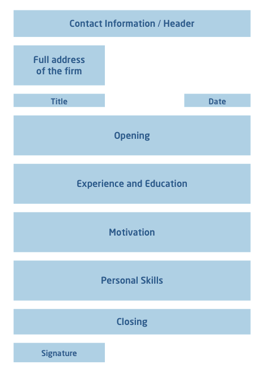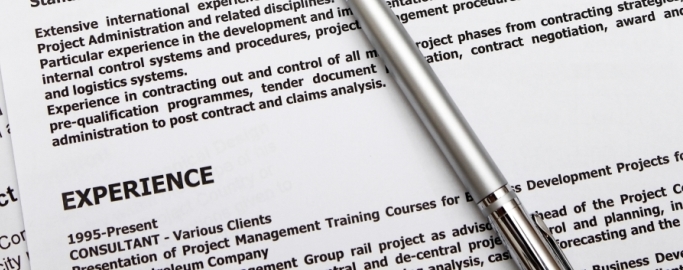Management Consultant Resume Sample

For many, the most convenient way to complete a job application is to pattern it from a management consultant resume sample on the Internet. Though this may be helpful, not all samples show you how to supply substantial and quality information.
Recruiters assume that your resume is an accurate representation of who you are. If it’s too superficial and commonplace, it might suggest that you won’t be able to make a valuable contribution to the consulting firm and your resume will therefore be put aside after the 30-second assessment. Breaking into management consulting is a serious goal and you have to craft your resume very carefully. It must be effective enough to pique the interest of the recruiters and convince them to schedule you for testing, interviews, and other assessments.
Pre-writing Requisite: Know Your Target Firm
Before you turn on the computer and start typing, allot some time to investigate your target firm. Your knowledge will guide you in writing your resume; it will help you build a connection between you and your potential employer and enable you to construct a unique and personalized marketing tool. Below are some techniques on how to do this:
| Website Visit | Visit the firm’s website. You will find their history, goals, values, and culture and learn the fundamental information about the organization. |
| Social Media | Follow their LinkedIn, Twitter, Facebook, and other social media accounts. They post links to industry trends, activities, events, and other company updates. Keep yourself abreast of these matters. If you can’t use this information for resume writing, you will benefit from it during job interviews. |
| Networking | Communicate with professionals who have worked or are working for the firm. Network with them in order to access information from an insider’s point of view. Some, if not all, will be eager to lend you a hand. |
How do these activities distinctly help you tailor your resume? First, you will be able to phrase your resume so it resonates with the individual company. Two firms may have the same values, stated in different terms. Alternate the terms in your resume to correspond with each firm you apply with. Moreover, you can emphasize content based on an individual firm’s goals. For instance, if a particular firm values leadership, it’s wise to list previous work experience and accomplishments highlighting your achievements in this area.
Resume Content
 You know for a fact that thousands of candidates are trying as hard as you to get a big break at Booz, BCG, or McKinsey. This emphasizes the need to thoroughly brainstorm before you write your resume content.
You know for a fact that thousands of candidates are trying as hard as you to get a big break at Booz, BCG, or McKinsey. This emphasizes the need to thoroughly brainstorm before you write your resume content.
Management consultant resume samples on the Internet do not follow a specific structure. The arrangement depends on your preference, experience, and skills. Experienced applicants often place their work history at the top because it clearly tells the recruiters what they have accomplished and what they are capable of. Recent graduates, on the other hand, highlight their objective and education, especially if they come from a prestigious school or if they have an impressive GPA.
Many, however, find the pattern in the diagram to the left comprehensible. If you are thinking of adopting this structure, continue reading for details on what to write in each section.
Contact Information
This is the section where you will provide basic information about yourself. It may sound easy, but here are a few techniques and reminders you may find useful:
| Name | The font size for your name must be larger than the rest of the text so recruiters can easily read and remember it. |
| Contact number | Check the accuracy of your contact number. Mixing up numbers is a huge mistake—you will never be contacted. |
| Links | Provide a link to your online portfolio, public LinkedIn profile, or blog so the recruiter can further assess you. |
| Email address | Use a professional email address. The recruiter won’t take you seriously if you use mischievousconsultant@example.com or sarcasticman@example.com. |
Summary or Objective
A summary is a brief statement of your major qualifications, expertise, and experience; an objective refers to your career goals and motivation. The former is often utilized by applicants with professional experience, while recent graduates employ the latter.
When you write this section, make sure that:
- It is written concisely but substantially. It should not exceed two to three sentences.
- It must be related to the desired position and target firm.
- It must be catchy enough to encourage the recruiters to read the rest of your resume.
Below is a good example of a summary:
Here’s an example of a good objective:
Professional Experience
When brainstorming about what you should include in this section, ask yourself two questions:
- What are the roles and responsibilities of a management consultant?
- What professional experience do I have that is relevant to the position?
As you know, recruiters don’t have the luxury of spending even five minutes on your job application. Hence, it is crucial that a recruiter can ascertain you have the right qualifications upon the first look at your resume. Moreover, including irrelevant details will lead the recruiter to assume you are not the perfect fit. It also wastes your limited space.
For every position you mention, describe your key responsibilities, followed by quantifiable accomplishments in bullet form. Use powerful terms such as verbs and numbers—they make your statements more results-oriented. Some of the suggested action words are listed in the table below:
| Addressed | Coordinated | Interviewed | Persuaded | Reviewed |
| Analyzed | Executed | Interpreted | Planned | Supervised |
| Communicated | Guided | Led | Promoted | Summarized |
| Conceptualized | Influenced | Managed | Recommended | Written |
Management consultant resume samples for experienced professionals would most probably state the experience section this way:
Project Manager, ABC Bright Ideas, Inc., June 2007 – November 2010Managed various projects on systems development and documentation for numerous clients. Coordinated and brainstormed with management regarding their system requirements. Occasionally supervised a team of researchers, analysts, and technical writers. Key achievements include the following:
- Redesigned the manufacturing system and procedures of XYZ Organization, which resulted in a 21% increase in monthly production.
- Conceptualized the functional requirements, alongside top management, of EFG Firm’s website in one month’s time.
- Evaluated and recommended human resource requirements for OPQ Business Corp, which reduced the labor cost by 10%.
Here’s an example for the fresh graduates:
Project Analyst, Internship Program, STU Consulting Firm, August – September 2012Assisted a team of management consultants in collecting, analyzing, and presenting market-related information to the client. Brainstormed with experts in creating the design for market researches. Analyzed industry trends and customer preferences on women’s apparel. Notable accomplishments are the following:
- Designed a questionnaire that yielded a 80% response rate within one week.
- Conducted a field interview in shops and boutiques with only 1% data collection error.
- Wrote a qualitative analysis of research results after thorough brainstorming.
If you shifted into a consulting career, focus on describing your soft skills and how they can be utilized in the firm. For instance, if you used to be a software developer, emphasize how you applied logical thinking in coding or how you resolved bugs with your problem solving capability.
Education
For recent graduates, education plays an important role in the resume. It serves as your foundation for entering the competitive industry of management consulting. It’s the indicator of your knowledge, competencies, and values. You can include the following information in this section:
| Name of institution | If you graduated from an Ivy League university, the prestige of your school is a factor recruiters will seriously consider. |
| Degree earned | This indicates what you learned over the past four years. It tells recruiters whether you have knowledge of accounting, management, marketing, economics, or law. |
| Grade Point Average (GPA) | Include your GPA if it’s remarkably high or if it meets the minimum requirement of the management consulting firm. |
| Remarkable academic achievements | If you graduated with honors or you received any distinctions, state it in your resume. Your determination and hard work to achieve these accolades will be taken into consideration. |
| Significant extracurricular activities | Your participation in various club activities will alert the recruiter that you have developed skills, discipline, and values that are necessary in management consulting. |
Take a look at the example below:
- VP Internal Affairs – Management Consulting Club, SY 2011- 2012
- Second Prize Winner – Case competition sponsored by Deloitte Consulting, September 2011
- Active Member – Marathon Club, SY’s 2009 – 2012
Here’s another one:
- Graduated Cum Laude
- Participated in the career trek to McKinsey and Bain, March 2011
- Won the school-wide case competition in social media marketing
Knowledge, Skills, and Abilities
When enumerating competencies, list the most relevant ones. It’s not the number but the substance that matters. You may have more than a handful of practical skills, but if they don’t have any bearing on the position you are applying for, save the space for pertinent information.
Think carefully about what you’ll write. If you apply to Marakon, do you think the programming languages you know are worth enumerating? It’s a boutique consulting firm that focuses on oil and gas, healthcare, consumer, retail, and financial services, so a list of competencies related to those areas will be more effective. However, if you apply to Accenture, it may be wise to list all of your competencies as the company also offers a wide range of technology services.
Here’s an idea of what this section may look like:
- Communications: Training and workshop implementation, negotiation, brainstorming, mind mapping, event organization;
- Operations: Strategy planning, systems analysis, project management, human resources management, organizational development, risk management;
- Languages: English, conversational Spanish and French; and
- Others: Stress management, sociability, meticulousness, business judgment.
Personal Interests
Writing about personal interests isn’t a requirement, but recruiters will not reject you for specifying them. If you do, you will gain these advantages:
| More Value | It adds more value to your resume. Some hobbies illustrate passion, diligence, and intrinsic motivation which are qualities that are necessary in the consulting field. |
| Memory Recall | It may facilitate memory recall. Many applicants have the same experience and expertise; writing about your hobbies might set you apart from the others. |
| Fun Side | It adds excitement to your resume; personal interests manifest your fun side. |
One line for interests will do, such as the example below:
- Personal Interests: Illustration, traveling, playing the guitar, and photography.
Review the Content and Form

Once you’re done writing your resume, proofread it to perfection. You may be able to think of better ways to represent yourself the second time you go over it. Never send out a resume without checking the content and form; your candidacy is at stake.
Below is a short checklist to ensure that your resume is perfect:
- Does it communicate the message you want to convey? Ensure that it proves you will be an asset to the firm. If you miss this part, the answers to the rest of the questions are fruitless.
- Is it tailored to the goals and requirements of the management consulting firm? It is critical that the recruiter sees that your qualities and personality match the position and the corporate culture.
- Is the data accurate? Remember that some recruiters validate the information. They sometimes enter your name in the search box, check your LinkedIn profiles, or call your previous supervisors to confirm what you’ve written.
- Is it free of typos and grammatical mistakes? These embarrassing blunders reflect poor communication skills and lack of attention to detail. Don’t give the impression that you don’t possess these basic qualities every consultant must have.
- Is the text legible? Don’t use a small font size to accommodate everything on one page, but don’t make it too large because then it occupies too much space. Fancy fonts are highly discouraged. Arial, Tahoma, Times New Roman, Calibri, and other conventional font styles are recommended.
- Does it have correct margins? The white space around the text and in between categories makes your document reader-friendly.
- Is the length sufficient? One page is ideal, two is acceptable, but anything more than that is too long.
If possible, ask a friend or professional to read your resume. Sometimes, a fresh set of eyes can give you objective feedback.
Common Resume Mistakes
Exercise care when writing a management consultant resume, otherwise you might commit the following mistakes:
One-Size-Fits-All Approach
Some resumes end up in the trash because applicants do not consider this as a critical step or they find it too troublesome to follow the aforementioned guidelines. As a result, they end up preparing an updated, generic resume they can readily print whenever they send out an application. Is this a good idea? Yes and no. Yes, to having an updated, generic resume ready in your hard drive because it can serve as your main reference source each time you tailor your resume to fit the firm you apply to. No, to the one-size-fits-all approach because your application will always have an impersonal tone and therefore won’t catch the recruiter’s attention.
Misrepresentation of Competencies
Another common mistake is misrepresenting oneself. True, you must project your best self in your resume, but it doesn’t mean you can make up stories in order to be noticed. If you do, you are fabricating information, a violation against honesty and integrity. Even if you are successful in the preliminary screening, your capabilities will still be evaluated during the interview. If you fail to prove you possess the abilities you say you do, you will be rejected and you will realize that you have wasted your and the recruiter’s time and effort.
The Waiting Time
Even if you follow all the guidelines in this post, there is still a probability that you might not be invited to interview. Unfortunately, it’s a sad reality that there’s an abundance of applicants in this industry. You are competing against candidates as qualified as you, so after sending out your job application, you may want to:
| Interview Practice | Start practicing for fit and case interviews. These are tough recruitment tools which you better prepare for. |
| Networking | Network with people who can possibly give you a status report about your application. It’s helpful to stay in touch with someone who can follow up for you. |
| Other Options | Continue looking for other career opportunities. As long as you don’t have a signed contract in your hand, you have to keep looking. |
| Resume Buildup | Take on other jobs to build up your resume. If you think your lack of experience is the reason why other applicants are ahead of you, consider positions that can prepare you for a management consulting career. |
Remember to always be proactive in your application. Nobody said that breaking into this industry is an easy venture. Just take things one step at a time and you will get there one day.






